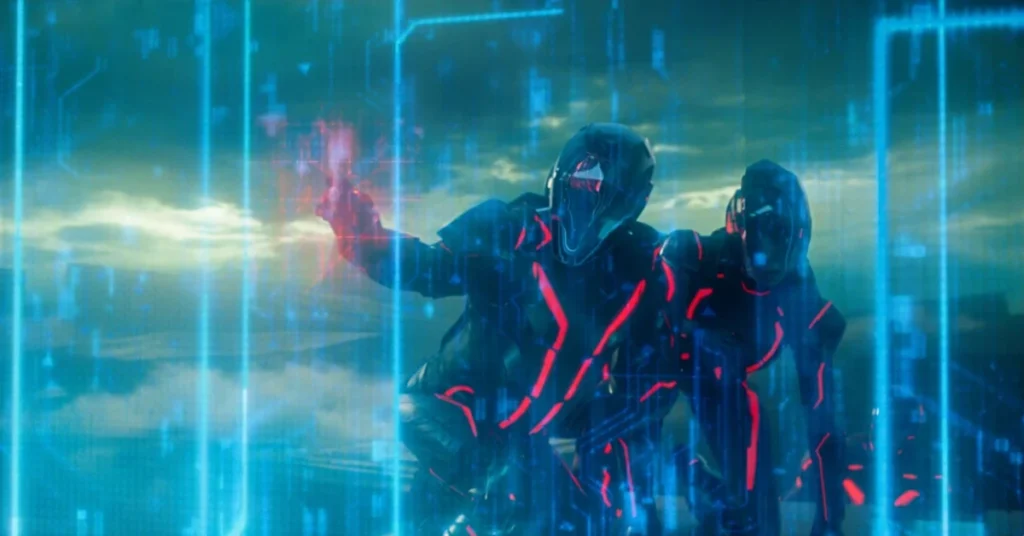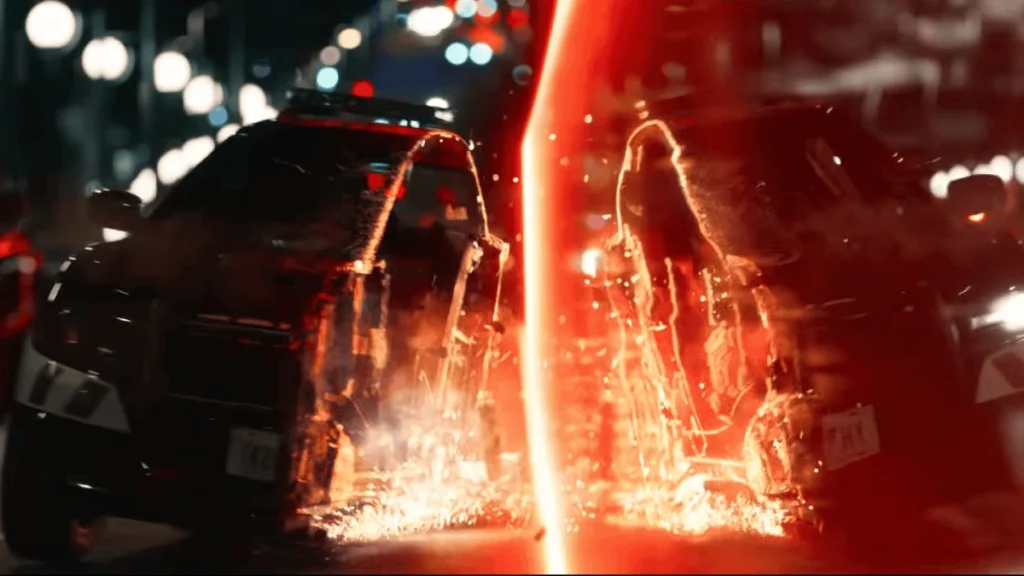The Tron franchise explores our drive to digitize the soul. Tron: Ares, the long-awaited sequel to 2010’s Tron: Legacy, pursues this quest with higher fidelity but less emotion. The film is visually immaculate, sonically thunderous, and emotionally vacant.
Director Joachim Rønning creates a world of flawless surfaces: light grids crawl across glass towers, and digital veins pulse through streets. The color palette feels engineered by nostalgia. Each frame gleams with computational polish, as if built by machines that learned to dream. But dreams require vulnerability, which the film resists. The world is perfect, but the story runs on automation.

At the center is the “Permanence Code,” software that lets digital beings exist in the physical world for more than 30 minutes. It sounds profound, but it becomes more mystical jargon than substance. Yet Tron: Ares dazzles on the surface. The chase sequences are kinetic sculptures of light and speed, rendered to perfection. The Nine Inch Nails soundtrack, by Trent Reznor and Atticus Ross, gives the film a pulse that is industrial, alien, and alive. Their sound design hums like an exposed circuit, becoming the film’s circulatory system.
Tron: Legacy’s Daft Punk score was its heartbeat. Here, Reznor and Ross achieve similar but darker results. Their music radiates menace and melancholy, overpowering the visuals with atmosphere. The soundtrack eclipses the film. You leave remembering the vibrations, not the dialogue.
Jared Leto plays Ares, a program sent to the real world, with restraint and ritual. His performance is deliberate and sometimes haunting, embodying a being that tries to understand existence, although the script limits exploration. Greta Lee, as Dr. Eve Kim, grounds the story with nuance and urgency. Evan Peters, as Edward Dillinger Jr., brings charisma that hints at a more complex film.
Arturo Castro’s Seth Flores injects levity into a story that rarely seeks it. He delivers with charm, but the humor often undercuts tension, feeling algorithmic. Hasan Minhaj, as Ajay Singh, is a strong but underutilized character. Known for his wit, he could have added more to the corporate conflict if allowed by the screenplay.
The dialogue occasionally attempts to convey philosophical weight. For example, when Jared Leto’s character declares, “I am fearless, therefore powerful,” the statement aims for a sense of revelation but comes across as hollow bravado. While Tron: Ares wants to explore the boundaries between machine and man, it rarely pauses long enough for these philosophical questions to resonate. The Tron universe has always carried a kernel of digital existentialism—this film gestures at deeper themes but does not fully engage with them.
Visually, however, it is extraordinary. The lighting design feels sculpted, the compositions painterly. In one rain-soaked sequence, reflections on asphalt blur into code, creating a sense of sublime confusion between what’s real and rendered. When the film slows down and allows silence to take its place, it approaches a state of transcendence. Those moments are fleeting but unforgettable.

Eventually, Ares loops into recursion. The final act feels trapped, rebooting old themes without resolution. The filmmakers strive for profundity, but spectacle ultimately prevails over soul. The movie becomes a feedback loop of sound and light—intricate, gorgeous, and emotionally detached.
Still, it’s impossible to look away. Tron: Ares exemplifies the paradox of modern filmmaking: sterile yet hypnotic, predictable yet mesmerizing. It’s like a pristine data center—cold, humming, perfect. You’ll remember its sound, pulse, and design, but not its message.
Maybe that’s the point. Tron: Ares prefers to be experienced, not understood. It’s about digital immortality, but it forgets what it means to live. Obsessed with permanence, it evaporates when the credits roll, leaving only its echo.
Verdict: Tron: Ares dazzles visually and comes alive with Nine Inch Nails’ haunting score, but remains emotionally untouched by its own perfection. It’s a spectacle that hums with equal parts power and emptiness.

